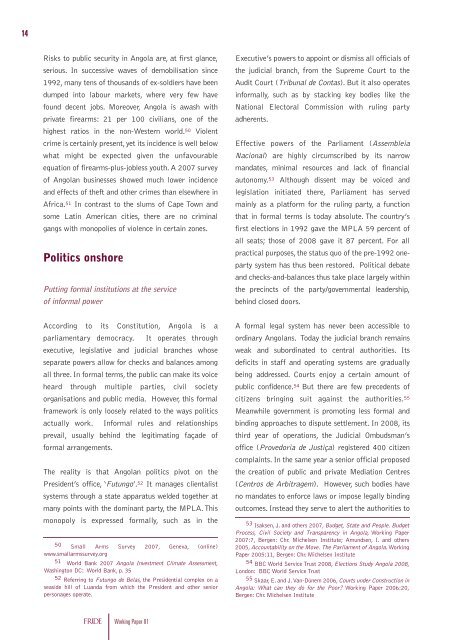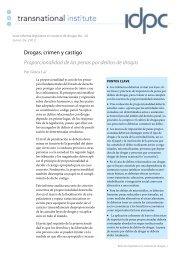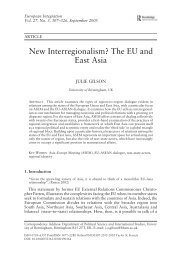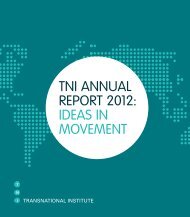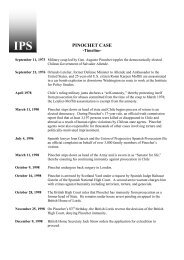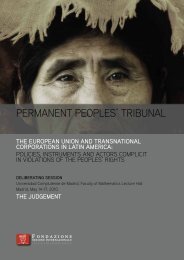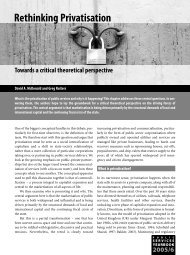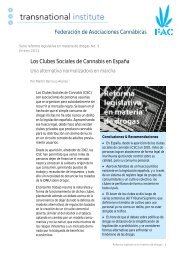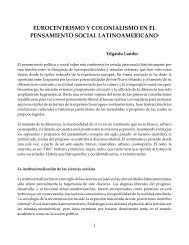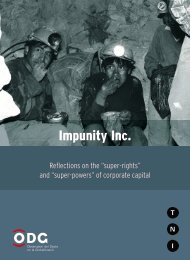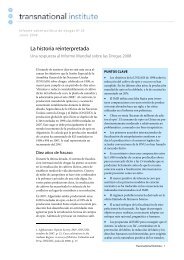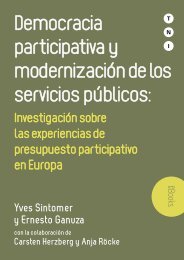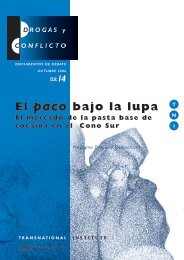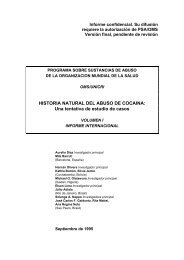Create successful ePaper yourself
Turn your PDF publications into a flip-book with our unique Google optimized e-Paper software.
14Risks to public security in <strong>Angola</strong> are, at first glance,serious. In successive waves of demobilisation since1992, many tens of thousands of ex-soldiers have beendumped into labour markets, where very few havefound decent jobs. Moreover, <strong>Angola</strong> is awash withprivate firearms: 21 per 100 civilians, one of thehighest ratios in the non-Western world. 50 Violentcrime is certainly present, <strong>yet</strong> its incidence is well belowwhat might be expected given the unfavourableequation of firearms-plus-jobless youth. A 2007 surveyof <strong>Angola</strong>n businesses showed much lower incidenceand effects of theft and other crimes than elsewhere inAfrica. 51 In contrast to the slums of Cape Town andsome Latin American cities, there are no criminalgangs with monopolies of violence in certain zones.Politics onshorePutting formal institutions at the serviceof informal powerExecutive’s powers to appoint or dismiss all officials ofthe judicial branch, from the Supreme Court to theAudit Court (Tribunal de Contas). But it also operatesinformally, such as by stacking key bodies like theNational Electoral Commission with ruling partyadherents.Effective powers of the Parliament (AssembleiaNacional) are highly circumscribed by its narrowmandates, minimal resources and lack of financialautonomy. 53 Although dissent may be voiced andlegislation initiated there, Parliament has servedmainly as a platform for the ruling party, a functionthat in formal terms is today absolute. The country’sfirst elections in 1992 gave the MPLA 59 percent ofall seats; those of 2008 gave it 87 percent. For allpractical purposes, the status quo of the pre-1992 onepartysystem has thus been restored. Political debateand checks-and-balances thus take place largely withinthe precincts of the party/governmental leadership,behind closed doors.According to its Constitution, <strong>Angola</strong> is aparliamentary democracy. It operates throughexecutive, legislative and judicial branches whoseseparate powers allow for checks and balances amongall three. In formal terms, the public can make its voiceheard through multiple parties, civil societyorganisations and public media. However, this formalframework is only loosely related to the ways politicsactually work. Informal rules and relationshipsprevail, usually behind the legitimating façade offormal arrangements.The reality is that <strong>Angola</strong>n politics pivot on thePresident’s office, ‘Futungo’. 52 It manages clientalistsystems through a state apparatus welded together atmany points with the dominant party, the MPLA. Thismonopoly is expressed formally, such as in the50 Small Arms Survey 2007, Geneva, (online)www.smallarmssurvey.org51 World Bank 2007 <strong>Angola</strong> Investment Climate Assessment,Washington DC: World Bank, p. 3552 Referring to Futungo de Belas, the Presidential complex on aseaside hill of Luanda from which the President and other seniorpersonages operate.A formal legal system has never been accessible toordinary <strong>Angola</strong>ns. Today the judicial branch remainsweak and subordinated to central authorities. Itsdeficits in staff and operating systems are graduallybeing addressed. Courts enjoy a certain amount ofpublic confidence. 54 But there are few precedents ofcitizens bringing suit against the authorities. 55Meanwhile government is promoting less formal andbinding approaches to dispute settlement. In 2008, itsthird year of operations, the Judicial Ombudsman’soffice (Provedoria de Justiça) registered 400 citizencomplaints. In the same year a senior official proposedthe creation of public and private Mediation Centres(Centros de Arbitragem). However, such bodies haveno mandates to enforce laws or impose legally bindingoutcomes. Instead they serve to alert the authorities to53 Isaksen, J. and others 2007, Budget, State and People. BudgetProcess, Civil Society and Transparency in <strong>Angola</strong>, Working Paper2007:7, Bergen: Chr. Michelsen Institute; Amundsen, I. and others2005, Accountability on the Move. The Parliament of <strong>Angola</strong>. WorkingPaper 2005:11, Bergen: Chr. Michelsen Institute54 BBC World Service Trust 2008, Elections Study <strong>Angola</strong> 2008,London: BBC World Service Trust55 Skaar, E. and J. Van-Dúnem 2006, Courts under Construction in<strong>Angola</strong>: What can they do for the Poor? Working Paper 2006:20,Bergen: Chr. Michelsen InstituteWorking Paper 81


